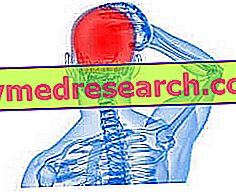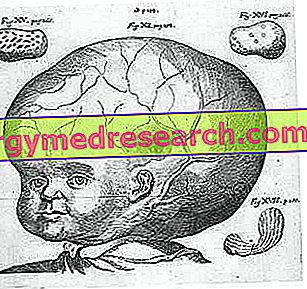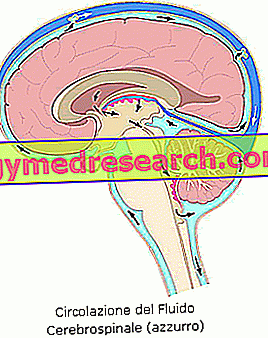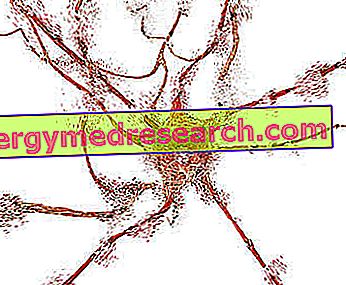Migraine phases During a typical migraine attack, several distinct phases are recognized, although the patient may not necessarily cross all of them: Prodromal phase : occurs hours or days before the headache occurs; Aura : immediately precedes the migraine; Phase of pain : corresponds to the acute headache phase; Resolution (or recovery) phase : includes the symptoms and disorders experienced after the end of a migraine attack
Category health of the nervous system
What is dystonia? Among the movement disorders - known as dyskinesias - dystonia stands out, responsible for involuntary muscular contractions and spasms that force the subject to take abnormal physical postures or to carry out unusual, often painful movements. A dystonic patient is unable to assume a natural position again or, otherwise, he would be able to modify the unusual position but gradually, using an abnormal effort and a sometimes exaggerated and vain physical suffering
Neurovegetative dystonia Among the generalized dystonias, some peculiar neurological syndromes stand out, characterized by muscular contractions and involuntary spasms of the extrapyramidal system: the disorder in question is known as neurovegetative or, more commonly, paroxysmal dystonia. Considering this syndrome as a mere "dystonia" can sometimes be reductive, considering that in this group of kinetic disorders there are also atetosis, chorea, ballism and cerebellar tremors, involuntary and uncontrolled movements of the musculature falling into the category of dyskinesias
Definition of focal dystonia Focal dystonias identify alterations of voluntary musculature typical of adulthood: spasms, contractions and stiffening of some muscle groups, and again abnormal and abnormal postures, torsions and repetitive movements of some body regions, describe the pathological picture of dystonia
Introduction The chapter concerning therapies aimed at treating dystonia is very articulated and, at the same time, delicate and thorny: unfortunately, Science has not yet identified a definitive and definitive cure for definitively eradicating the kinetic disorder. Each dystonic patient is unique, since the disease begins or progresses through different symptoms, sometimes stable over time, sometimes variable; consequently, the therapy must be personalized to the individual
Generality Ophthalmic migraine is a form of headache characterized by the appearance of visual problems and / or neurological symptoms. Headaches, in particular, can be associated with photophobia, phosphenes (flashes and flashes of light), scotomas (vision of dark or colored spots), transient loss of vision (partial or complete), nausea, dizziness and tingling in the upper limbs
What is hydrocephalus Hydrocephalus is a complex CNS malformation characterized by an accumulation of CSF in the cerebral and / or meningeal ventricular space. In hydrocephalus, the exaggerated and pathological collection of cerebrospinal fluid causes an increase in intracranial pressure, in turn responsible for serious disorders: psychic alterations, convulsions, increased head circumference, intellectual deficits and mood disorders are just some of the innumerable symptoms induced by hydrocephalus
Introduction The term "hydrocephalus" refers to a pathological accumulation of liquor under-voltage, inside cerebral ventricles and / or meninges. When not treated early, hydrocephalus can trigger a series of catastrophic events until death. The objective of this article is to provide a comprehensive and concise reading of symptoms and complications associated with hydrocephalus
Key points The term "hydrocephalus" defines a serious disease characterized by the pathological accumulation of CSF in the sub arachnoid space and in the cerebral ventricles. Hydrocephalus: causes The main cause of hydrocephalus lies in the exaggerated increase in intracranial pressure, which favors the accumulation of CSF in the brain
Definition of liquor The liquor is a clear and colorless fluid that permeates the central nervous system, protecting the brain and spinal cord from possible trauma. In medical literature, liquor is also recognized with other synonyms: spinal-spinal fluid, cerebrospinal fluid, cerebrospinal fluid or more simply CSF (acronym of cerebrospinal fluid )
Generality Neurodegenerative diseases constitute a set of pathologies characterized by an irreversible and progressive loss of neuronal cells in certain areas of the brain. The pathologies included in the group of neurodegenerative diseases are different and, for many of them, the causes of onset are still unclear










